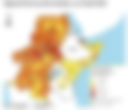
Food Security Alert, November 2021
In October 2021, FSNWG issued a food security alert calling for immediate action in response to expectations of rising food and nutrition insecurity linked to consecutive poor rainy seasons and forecasts for another poor season between October and December 2021 across parts of the Horn of Africa.
Since this alert was published, the following updates have become available:
- Rainfall: As forecasted, the start of the 2021 October – December rainy season has been significantly delayed with little to no rainfall observed to date across much of eastern and northern Kenya, southern and central Somalia, southern Ethiopia, bimodal areas of northern Tanzania, and localized areas of Uganda. Analyses suggest that rainfall levels through mid-November will likely be the lowest on record since 1981 in some areas.
- Agricultural conditions: Harvest prospects are currently looking poor across affected areas. Given the cropping calendars in the affected areas, it is unlikely that crops will recover regardless of rainfall that occurs during the remainder of the season. Current rangeland conditions are also extremely poor with livestock deaths reported across the three worst-affected countries.
- Markets: Staple food prices are significantly above the five-year average across parts of the region, due to the combined effects of macro-economic challenges in certain countries and below-average harvests during the previous season in others. In worst-affected areas of Somalia, sharp food price increases have been larger than those observed during Somalia’s 2011 and 2017 drought emergencies.
- Food security and nutrition: Given the poor start of the rainy season, the magnitude of food insecurity and malnutrition across Ethiopia, Kenya, and Somalia will likely grow significantly during the first half of 2022, during the peak of the affected areas’ pastoral and agro-pastoral lean seasons (February to March and April to June, respectively). Action is therefore required now to prevent current and future food consumption gaps, the depletion of livelihood assets, and rising levels of acute malnutrition.
FSNWG calls on its members to implement appropriate, timely and well-targeted actions across affected areas of the region to anticipate the peak of the crisis. There is also need for close monitoring of seasonal progress and food security outcomes, as well as significant scale-up of contributions to existing and future humanitarian response plans as the response to date remains underfunded.
A more detailed analysis and additional information is available in the full alert at the link on the left. Please feel free to share it within your networks.



